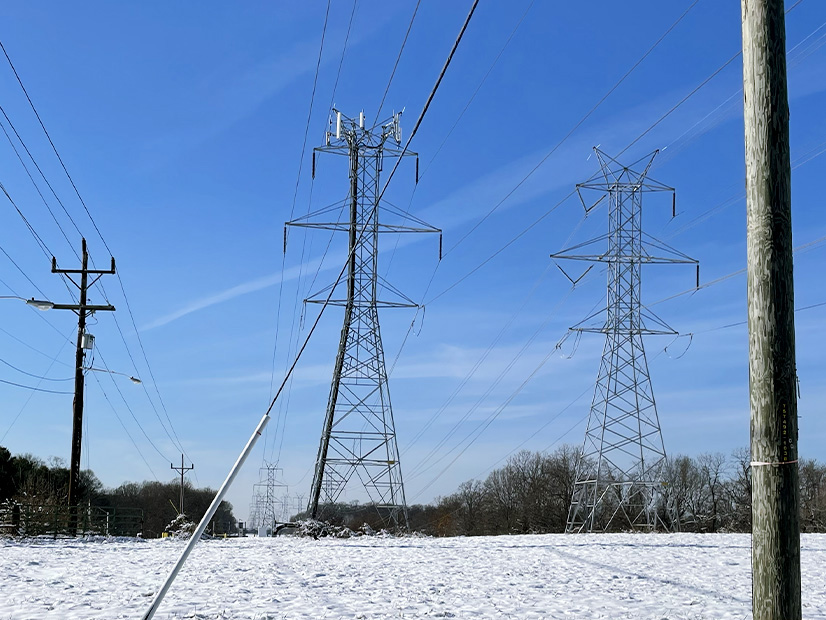FERC provided its promised justification for denying a request to rehear its recently approved cold weather standard, saying the petitioners’ cost recovery concerns were outside the scope of the proceeding (RD23-1).
While the commission’s vote was unanimous, Commissioner James Danly in a concurrence urged a separate investigation into the cost recovery mechanisms established by RTOs and ISOs.
The Electric Power Supply Association (EPSA), the New England Power Generators Association (NEPGA), and the PJM Power Providers Group filed a request for rehearing of EOP-012-1 (Extreme cold weather preparedness and operations), which FERC approved in February along with EOP-011-3 (Emergency operations). That request was denied “by operation of law” in April, when the commission allowed 30 days to pass without action on the request. (See FERC Denies Rehearing of Cold Weather Standard.)
In its follow-up filing last week, the commissioners affirmed that they “continue to reach the same result ” even after considering the petitioners’ arguments.
Petitioners Objected to Cost Burden
EPSA, NEPGA and the PJM group objected to the standard’s requirements for freeze protection measures on new and existing generating units, claiming the measures would require generator owners “to incur potentially significant costs that they lack a reasonable opportunity to recover through rates.” However, FERC declined to address this argument in its implementation order, calling it “outside the scope of the instant proceeding.”
The petitioners responded that by failing to address cost recovery in its order, FERC violated Sections 215 and 219 of the Federal Power Act. They argued the commission should have initiated a proceeding under FPA Section 206 to explore means of cost recovery for compliance with the new standards.
Responding to the cost recovery question, FERC observed that Section 215 says it may approve a proposed standard if the standard is “just, reasonable, not unduly discriminatory or preferential and in the public interest.” It drew a sharp contrast between this part of the act and Section 206, which governs rate proceedings; while both sections use the term “just and reasonable,” FERC said the language in Section 215 clearly does not refer to utilities’ rates.
“While petitioners may have preferred that the commission adopt a specific cost recovery mechanism … the commission’s approval of a reliability standard without such a mechanism does not run afoul of FPA Section 215,” the commission said in its June 29 order. “Nothing in petitioners’ rehearing request suggests that [the standard] is insufficient to protect the reliability of the [grid], which … is the commission’s primary concern in this proceeding.”
Regarding the request for a Section 206 proceeding, FERC said it did not err because Section 215 does not require such actions in connection with reliability standards. Moreover, it pointed out that entities have other means of seeking cost recovery and that nothing in its order affirming the standards prevents them from doing so.
The petitioners also suggested NERC change the standards to require “balancing authorities to ensure sufficient quantities of weather-resilient generation are available, which would then have allowed for the development of rules that would also address cost recovery.” This too was rejected by FERC, which said “nothing in [the] rehearing request suggests that generator owners and … operators are incapable of the duties required under the reliability standard.”
Finally, the commission said Section 219, which “allow[s] the recovery of all costs prudently incurred to comply with the reliability standards,” does not require it to address cost recovery when approving reliability standards, as the petitioners claimed. FERC said utilities that feel they are eligible for cost recovery under this section may do so with “the appropriate filing” and that its order does not preclude such a filing.
Danly Warns of Generation Retirements
In his concurrence, Danly affirmed he supported his fellow commissioners’ decision. However, he warned a Section 206 investigation may be warranted, concerning whether the cost recovery mechanisms used by RTOs and ISOs “can be relied upon to ensure just and reasonable rates.”
Danly said “increasing reliability risk throughout the country” indicates that RTOs and ISOs have not provided the proper incentives for utilities to retain and add the dispatchable generation needed to ride out adverse grid events. He cited a warning from PJM that generation retirement rates are “exceeding the rate of new additions of resources that … we need to manage the grid of the future,” adding that PJM attributed these retirements in part to “diminished energy revenues.”
“Prudence demands that the commission make sure its markets adequately compensate compliance with [reliability] standards in advance of those standards becoming mandatory and enforceable,” Danly said. “Otherwise, sufficient generation may not be available during the next cold weather event. They may have already retired.”




